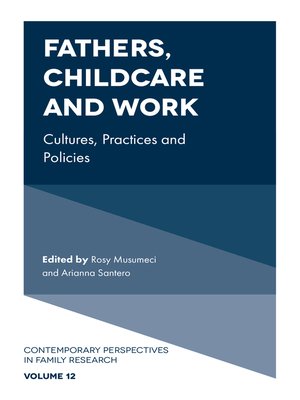Contemporary Perspectives in Family Research, Volume 12
ebook ∣ Fathers, Childcare and Work: Cultures, Practices and Policies · Contemporary Perspectives in Family Research
By Rosy Musumeci

Sign up to save your library
With an OverDrive account, you can save your favorite libraries for at-a-glance information about availability. Find out more about OverDrive accounts.
Find this title in Libby, the library reading app by OverDrive.



Search for a digital library with this title
Title found at these libraries:
| Library Name | Distance |
|---|---|
| Loading... |
The work-life balance of fathers has increasingly come under scrutiny in political and academic debates. This collection brings together qualitative and quantitative empirical analyses to explore fathers' approaches to reconciling paid work and care responsibilities. Taking a global perspective, contributors explore how fathers realize and represent their gendered work-care balance and how enterprises and experts, in country specific institutional context, provide formal and informal resources, constrains, expectations and social norms that shape their practices.
Chapters explore how fathers from different social and economic backgrounds fullfil their roles both within the family and in the workplace, and what support they rely on in combining these roles. Further, the collection explores an area of research that has been little investigated: the role played by organizational cultures and experts (such as obstetricians, gynaecologists, paediatricians and psychologists) in shaping notions of 'good' fatherhood and fathering, to which individuals are required to confirm, and to which they, variously, comply or resist.
Chapters explore how fathers from different social and economic backgrounds fullfil their roles both within the family and in the workplace, and what support they rely on in combining these roles. Further, the collection explores an area of research that has been little investigated: the role played by organizational cultures and experts (such as obstetricians, gynaecologists, paediatricians and psychologists) in shaping notions of 'good' fatherhood and fathering, to which individuals are required to confirm, and to which they, variously, comply or resist.







